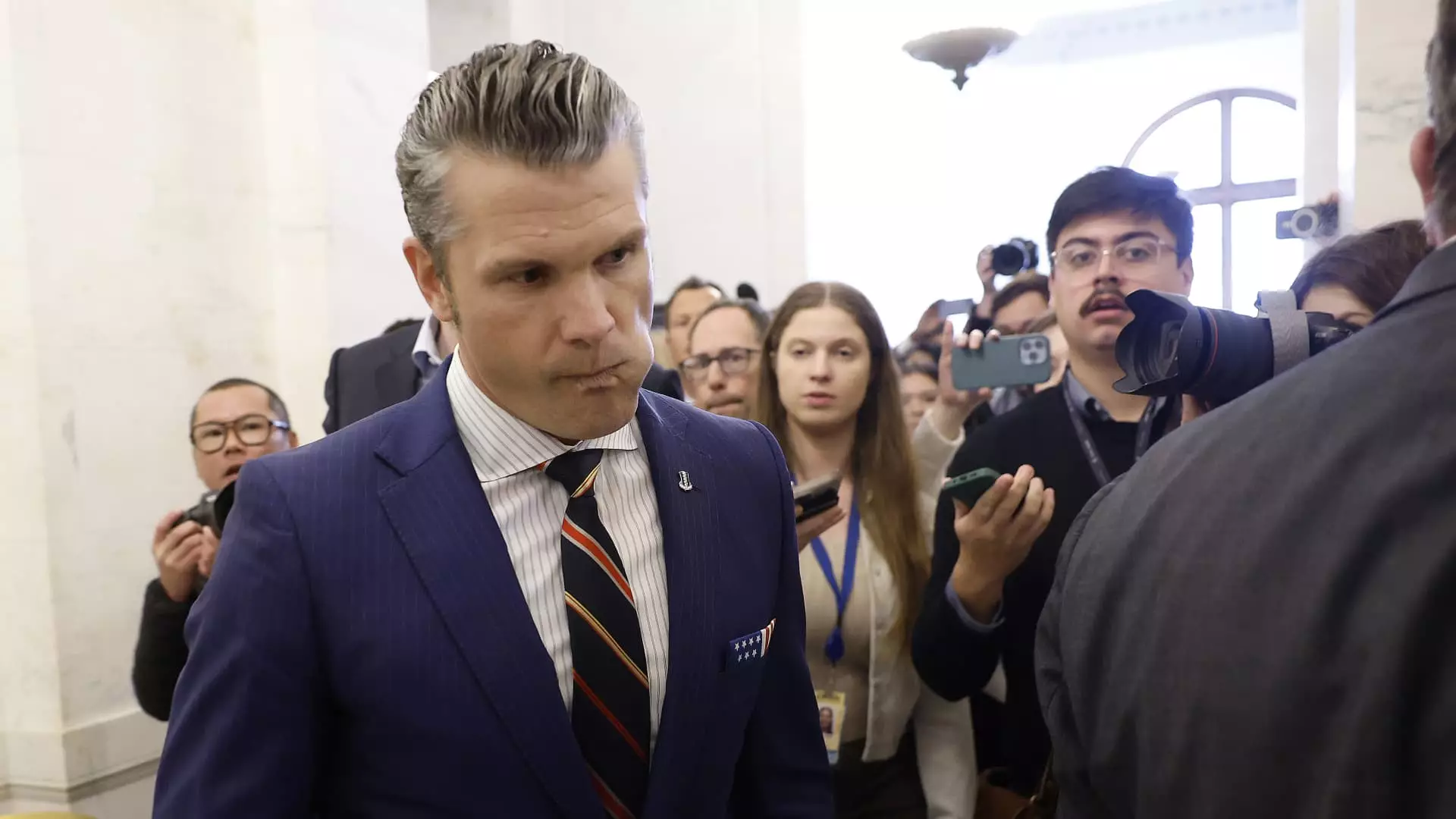The appointment of Pete Hegseth as the prospective Secretary of Defense under President-elect Donald Trump has sparked significant scrutiny and controversy. Hegseth, a decorated military veteran and Fox News personality, finds himself grappling with serious allegations regarding his conduct while leading various veteran advocacy organizations. A detailed report by The New Yorker revealed troubling accounts of alleged alcohol abuse, sexual misconduct, and mismanagement during Hegseth’s tenure at Concerned Veterans for America (CVA) and Vets for Freedom (VFF). This exposé presents a disturbing look at Hegseth’s leadership style and ethical standards, raising questions about his suitability for a significant government role.
The New Yorker’s report, based on information from a 2015 whistleblower complaint, paints a troubling picture of Hegseth’s behavior while presiding over CVA. It alleges that he exhibited erratic behavior consistent with heavy drinking, reportedly needing assistance from colleagues to leave events. One particularly disturbing incident described him being restrained from joining dancers on stage in a Louisiana strip club, showcasing unprofessionalism that undermined his position. Furthermore, the report hints at a toxic workplace culture, where Hegseth and his management team allegedly engaged in inappropriate pursuits of female employees, categorizing staff into derogatory groups based on their social preferences.
Such details, if accurate, raise profound ethical concerns about Hegseth’s capacity to lead effectively and with integrity. The culture of harassment and alcohol abuse described suggests a leadership style that may prioritize personal indulgence over the mission of supporting veterans—an issue particularly problematic for the head of the Department of Defense, an institution tasked with the care and welfare of military personnel.
The allegations against Hegseth are not limited to personal misconduct; they also encompass significant organizational failures. During his leadership of Vets for Freedom, the organization reportedly spiraled into serious financial trouble, accumulating substantial debt. This financial strain led to donor actions aimed explicitly at curbing Hegseth’s influence and reassessing the organization’s direction. Such a situation raises questions regarding his business acumen, leadership stability, and the potential consequences for the entities under his oversight.
Financial mismanagement in such organizations not only jeopardizes their immediate operational sustainability but also damages their reputational credibility, making it difficult to advocate effectively for veteran rights. If Hegseth struggled to manage resources responsibly in these nonprofit endeavors, it casts doubt on his capacity to oversee the Pentagon’s extensive budget and operations.
Adding to the complexities surrounding Hegseth’s nomination is an incident investigated by police in Monterey, California, related to an alleged sexual assault. Despite being cleared of criminal charges—following an investigation that deemed there was insufficient evidence—it exacerbated the already precarious situation surrounding his appointment. The context of these allegations—occurring during a contentious divorce and amidst personal scandal—further complicates the narrative, suggesting deeper issues of personal judgment and integrity.
Moreover, Hegseth’s decision to settle with the accuser, albeit privately and without admission of guilt, indicates a strategy to mitigate damage rather than confront the allegations. Such actions are common in high-profile cases, but they can also be interpreted as tacit acknowledgment of the potential credibility of claims against him. The fact that these details emerged in tandem with his anticipated nomination underscores the challenges that lie ahead.
As Hegseth’s nomination progresses through the confirmation process, the implications of these revelations are manifold. Lawmakers and the public alike will undoubtedly scrutinize his past, which raises critical questions about qualifications, moral judgment, and the impact on the Department of Defense’s image. Beyond political ramifications, there’s a societal conversation to be had around accountability in leadership roles—especially concerning the treatment of women and the responsible management of nonprofit organizations.
Moving forward, scrutiny will likely intensify, both from political opponents and watchdog organizations dedicated to ensuring ethical governance. As Hegseth contemplates his future at the Pentagon, the weight of these allegations represents a significant challenge. For a leader entrusted with the welfare of the nation’s military, the imperative for transparency, integrity, and accountability must remain paramount—characteristics that have, unfortunately, come under question in Hegseth’s professional narrative.
Overall, the controversies surrounding Pete Hegseth serve as a cautionary tale about the complexities of leadership, the moral responsibilities that accompany it, and the potentially lasting impacts of one’s actions and choices in both personal and professional domains.

